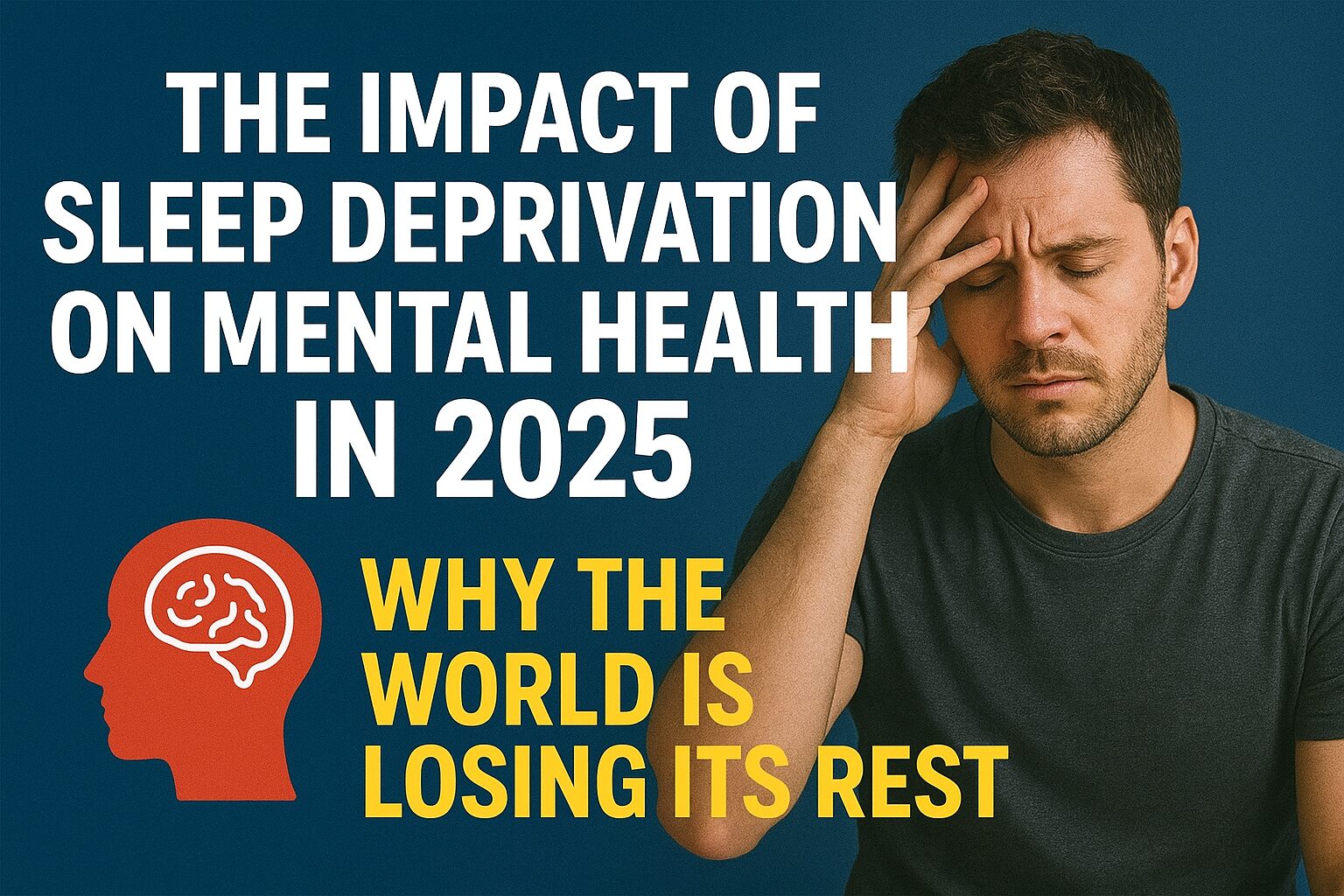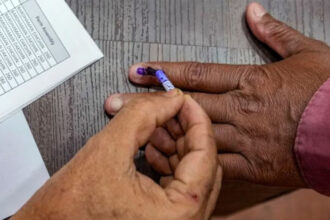In 2025, sleep deprivation has quietly become one of the biggest global health challenges. As technology blurs the line between day and night, millions of people are sacrificing rest for productivity, entertainment, or stress. What most don’t realize is that chronic lack of sleep isn’t just making them tired — it’s directly damaging their mental health. From anxiety and depression to burnout and emotional instability, the mental toll of sleeplessness has reached a crisis point.
- 1. The Global Sleep Crisis
- 2. Causes of Sleep Deprivation in 2025
- a. Digital Addiction
- b. Work Stress & Remote Lifestyle
- c. Mental Overload & Anxiety
- d. Caffeine & Late Meals
- e. Environmental Factors
- 3. The Psychological Effects of Poor Sleep
- a. Anxiety & Depression
- b. Cognitive Decline
- c. Mood Swings & Irritability
- d. Burnout & Productivity Loss
- 4. Physical Consequences Linked to Mental Health
- 5. The Science of Sleep and the Brain
- 6. Global Trends: How the World Is Responding
- 7. Practical Tips to Improve Sleep & Mental Health
- 8. Expert Insight
- Conclusion
1. The Global Sleep Crisis
A recent World Health Organization (WHO) report shows that over 60% of adults worldwide are not meeting the recommended 7–8 hours of sleep.
In countries like the U.S., India, Japan, and the U.K., the average sleep duration has fallen to less than 6 hours. This trend is being called the “silent epidemic” of the digital era.
Dr. Arjun Bhatia, a neurologist at Apollo Hospitals, warns:
“Sleep deprivation is now as dangerous to public health as smoking and obesity. We’re witnessing a generation of people who are permanently exhausted and mentally fragile.”
2. Causes of Sleep Deprivation in 2025
a. Digital Addiction
Smartphones, streaming platforms, and late-night scrolling are the biggest culprits. The blue light emitted from screens suppresses melatonin, the sleep hormone. A 2025 study by Sleep Foundation found that people who use their phones within one hour of bedtime experience 40% poorer sleep quality.
b. Work Stress & Remote Lifestyle
With work-from-home becoming the norm, employees struggle to separate office hours from personal time. Many end up working into the night, blurring their sleep schedule.
c. Mental Overload & Anxiety
Constant exposure to bad news, social comparisons, and financial stress keeps the brain in alert mode. This hyperactive mental state prevents restful sleep, even when lying in bed.
d. Caffeine & Late Meals
Coffee, energy drinks, and heavy dinners close to bedtime disrupt the body’s natural rhythm. Overreliance on caffeine to stay productive leads to a vicious cycle — the more you stay awake, the less you can sleep.
e. Environmental Factors
Urban noise, light pollution, and irregular work shifts also contribute to poor sleep hygiene, especially among city dwellers.
3. The Psychological Effects of Poor Sleep
a. Anxiety & Depression
Sleep deprivation and mental health are deeply interconnected. When sleep is insufficient, the brain’s emotional control center — the amygdala — becomes overactive. This leads to exaggerated stress responses and increased anxiety.
Long-term, this imbalance can trigger clinical depression.
b. Cognitive Decline
Lack of rest slows down memory consolidation and problem-solving abilities. Students, professionals, and even drivers are making more mistakes because of fatigue.
c. Mood Swings & Irritability
When you don’t sleep, your serotonin levels drop. As a result, even small inconveniences can cause anger, sadness, or frustration.
d. Burnout & Productivity Loss
Ironically, people sacrifice sleep to get more work done — but end up being less efficient. A Harvard study estimates that sleep deprivation costs the global economy over $600 billion annually in lost productivity.
4. Physical Consequences Linked to Mental Health
The mental impact of poor sleep is compounded by physical issues:
- High blood pressure
- Weakened immunity
- Hormonal imbalance
- Weight gain and diabetes
These health issues further intensify mental stress, creating a self-destructive loop between physical and emotional exhaustion.
5. The Science of Sleep and the Brain
During deep sleep, the brain performs critical tasks like memory consolidation, emotional regulation, and waste removal. Without enough sleep, toxins build up in brain cells, affecting mood and cognition.
A 2025 study by Stanford Neuroscience Institute found that adults who sleep less than 6 hours per night show 30% higher cortisol (stress hormone) levels the next day.
6. Global Trends: How the World Is Responding
a. Corporate Wellness Programs
Tech companies like Google and Infosys now include “Sleep Health Training” in employee programs. Napping pods, flexible hours, and mental-health leaves are becoming common.
b. Sleep Tech Boom
AI-powered apps such as SleepScore, Calm, and Headspace are tracking sleep patterns, suggesting bedtime routines, and even adjusting smart home lighting to support rest cycles.
c. National Awareness Campaigns
Japan, India, and Australia have launched public initiatives encouraging citizens to prioritize 7 hours of rest as part of a “Healthy Mind, Healthy Life” campaign.
7. Practical Tips to Improve Sleep & Mental Health
- Set a Digital Curfew: Switch off all screens 60 minutes before bed.
- Follow a Fixed Schedule: Sleep and wake up at the same time daily.
- Limit Caffeine & Alcohol: Avoid after 6 PM.
- Create a Calm Environment: Keep your bedroom dark, quiet, and cool.
- Practice Mindfulness or Meditation: Helps calm racing thoughts.
- Stay Physically Active: Exercise during the day improves deep sleep quality.
- Use Relaxing Sounds or Aromatherapy: Nature sounds and lavender scents can promote calmness.
8. Expert Insight
Psychiatrist Dr. Priya Malhotra emphasizes:
“Sleep is not a luxury — it’s a biological necessity. You can survive without food for days, but without sleep, your brain begins to break down almost immediately.”
Conclusion
The modern world may glorify the “hustle,” but the truth is — sleeplessness kills creativity, balance, and mental peace. In 2025, reclaiming your rest is an act of self-care and survival. Better sleep means better mood, sharper focus, and stronger mental health. The time to switch off — literally and mentally — is now.








